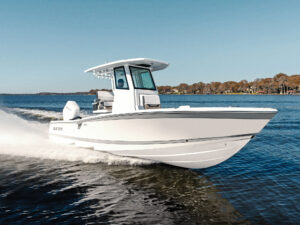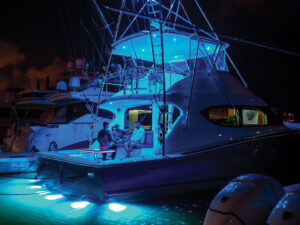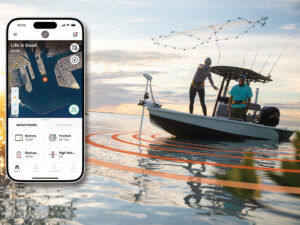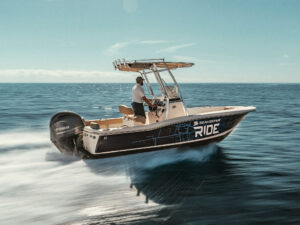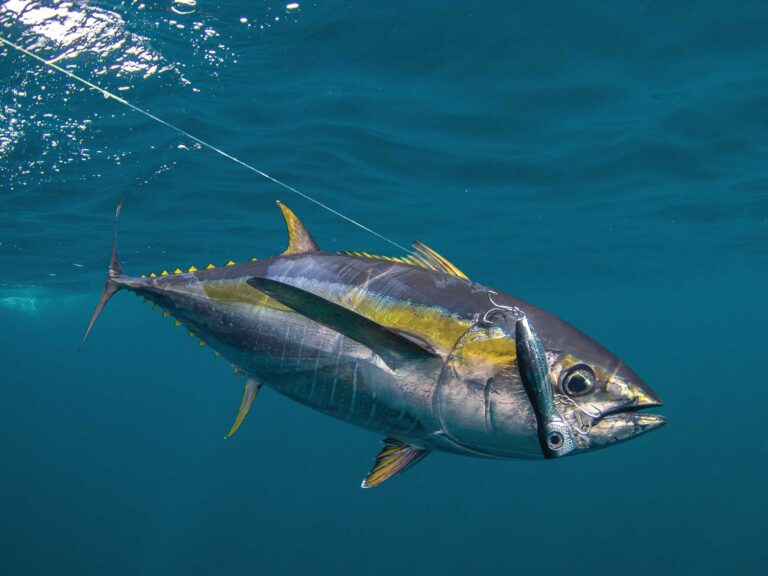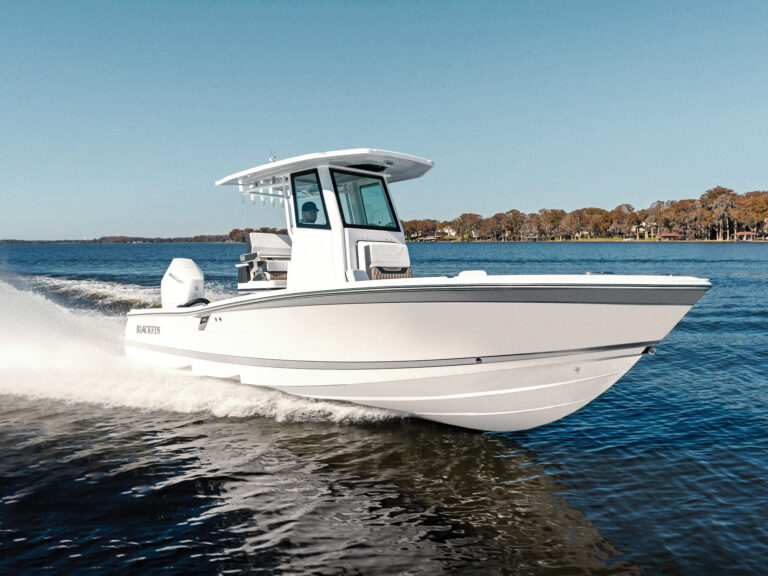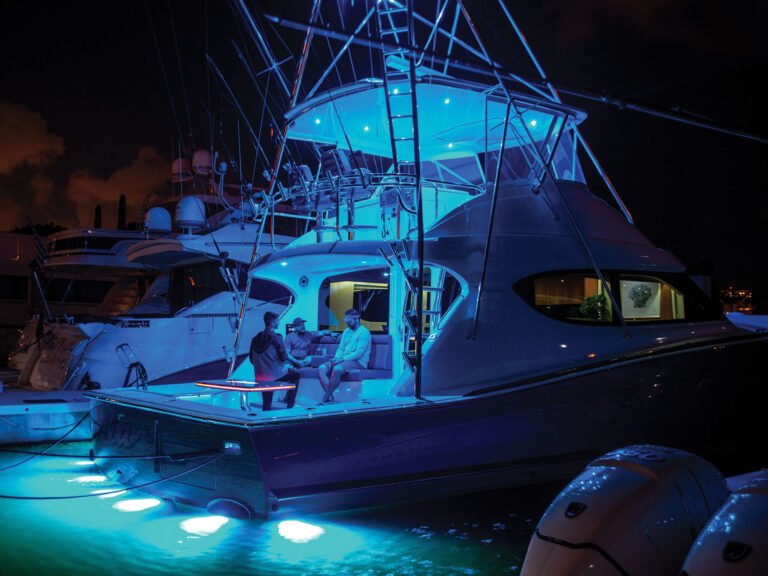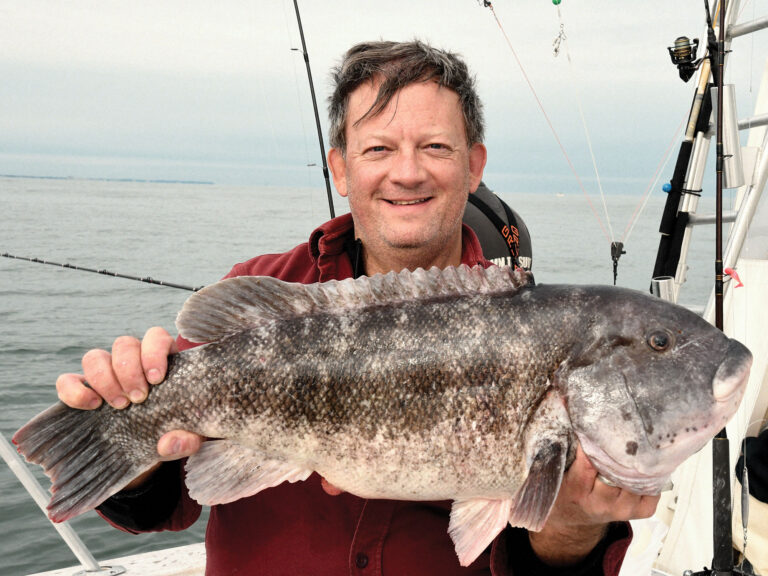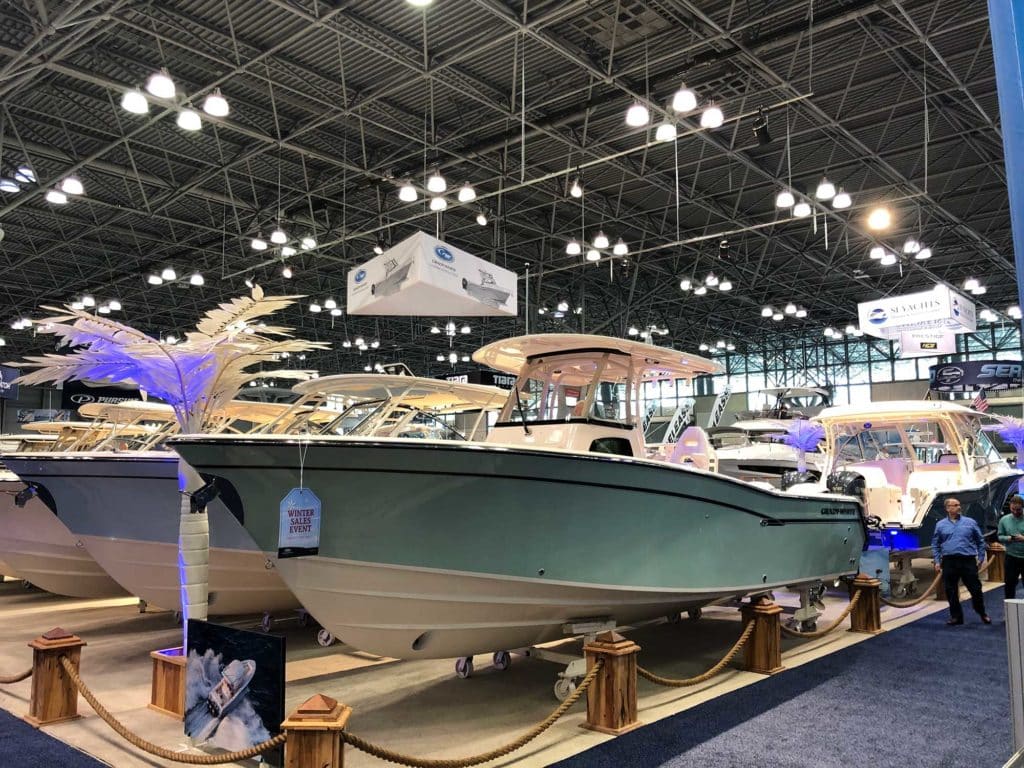
Simple Guidelines For Smart Boat Buying
Even anglers with years of boating experience find buying a boat an exciting, but challenging proposition, worthy of a lot of thought. It’s not enough to look at the specs and the price and go out for a test ride before settling on a boat and inking the deal. Car buyers read reviews and research specific makes and models before committing, and buying a boat should be no different. Before you head to your nearest boat dealer, or stroll down the aisles at that big boat show, ask yourself the following 10 questions and take the time to write down the answers:
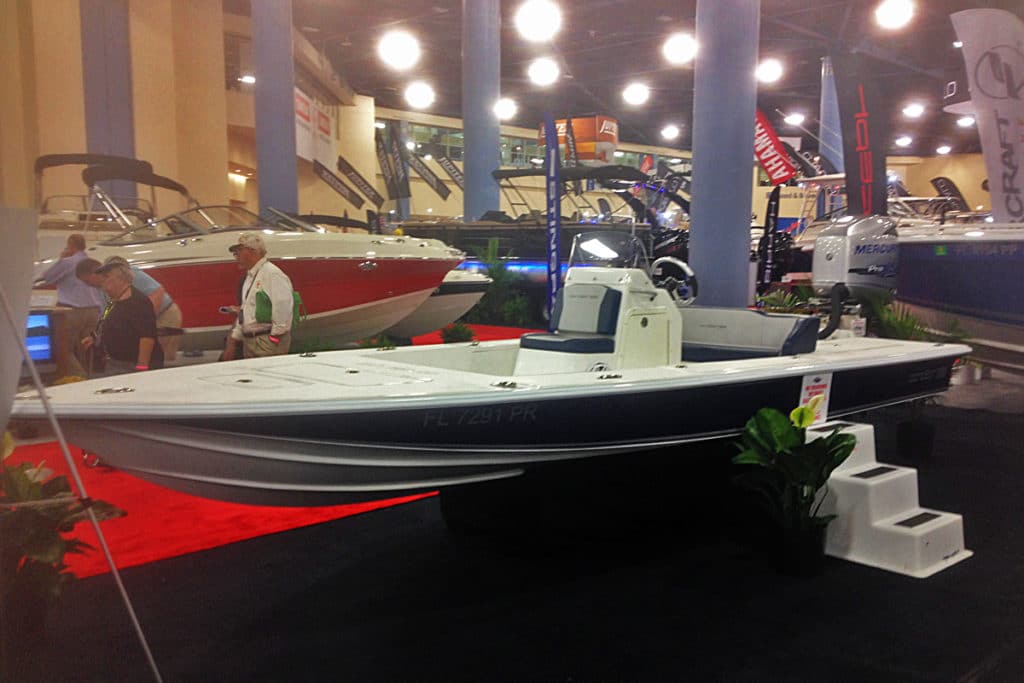
Will you fish inshore, offshore, or do some of both?
If inshore angling is your bag, look for an 18- to 20-foot flats boat to fish the shallows. Should you desire to stalk tailing fish in a foot of water of less, then a technical poling skiff — small (15 to 17 feet) and very lightweight — is just the ticket, though it limits you to two, or perhaps three anglers max. If you’d rather fish offshore, there are center consoles, walkarounds, cuddy cabins and others to consider. The choice comes down to personal preference, but the size and features should be based on your needs. And if you want the option to fish both inshore and off, you’ll probably be happier with a bay boat, one of the versatile 21- to 26-foot hybrids with a shallow draft and enough of a deep-V to slice through the waves.
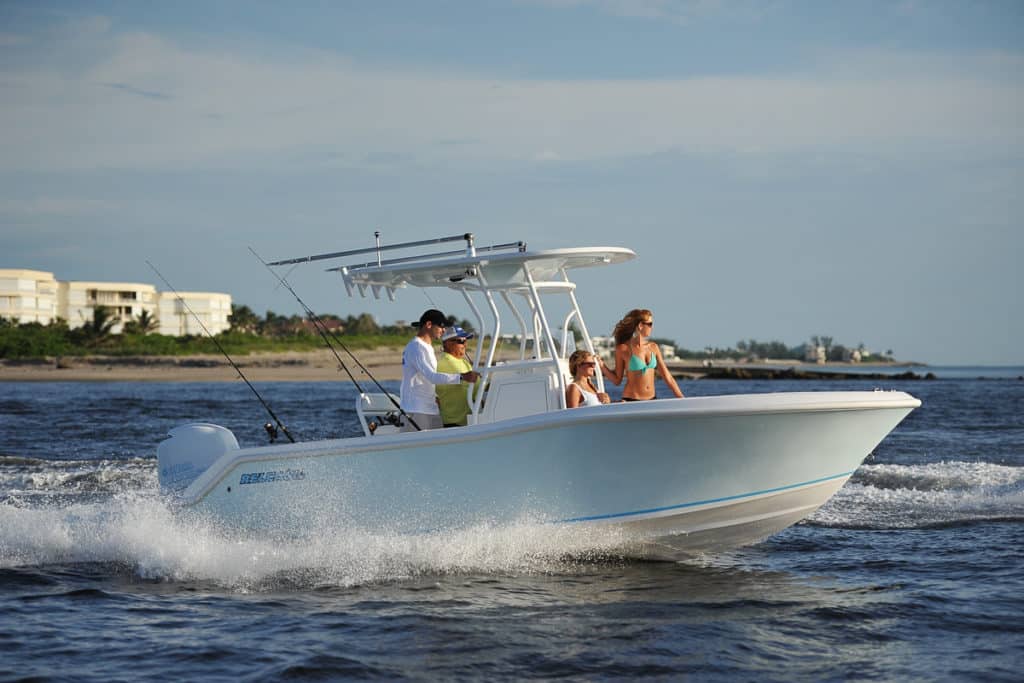
Will you take the family out, or will it just be you and a buddy or two going fishing?
Your answer helps you determine the size of the boat and the layout to look for. For instance, a center console with spacious cockpit affords anglers the room to cast or set out lines without getting in each other’s way and follow a hooked fish all around the boat, great for hardcore fishing. But a walkaround with a small cabin, head compartment and forward seating, more desirable for the family, could be a good compromise.
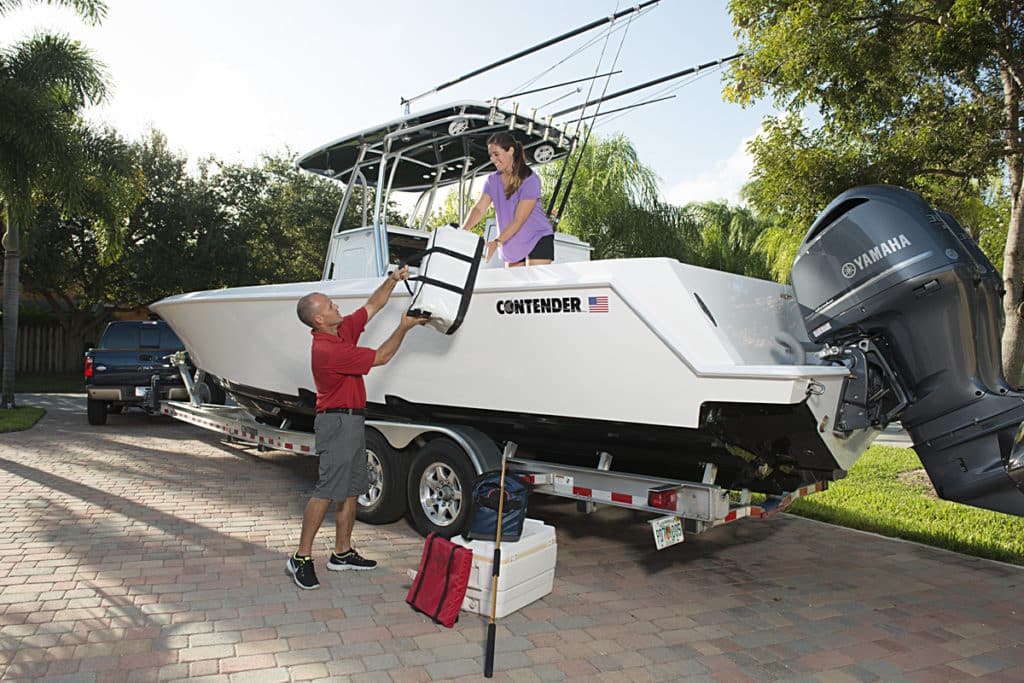
How much gear will you carry onboard?
Taking into account the type of fishing you plan to do, figure out the number of rods and how much tackle you are likely to carry. Then think of any extras: safety gear, gaffs or landing nets, cast nets, binoculars, and rain gear. Once you have a handle on the arsenal you’ll want to bring along, look for a boat with enough compartments and rod storage to accommodate it all.
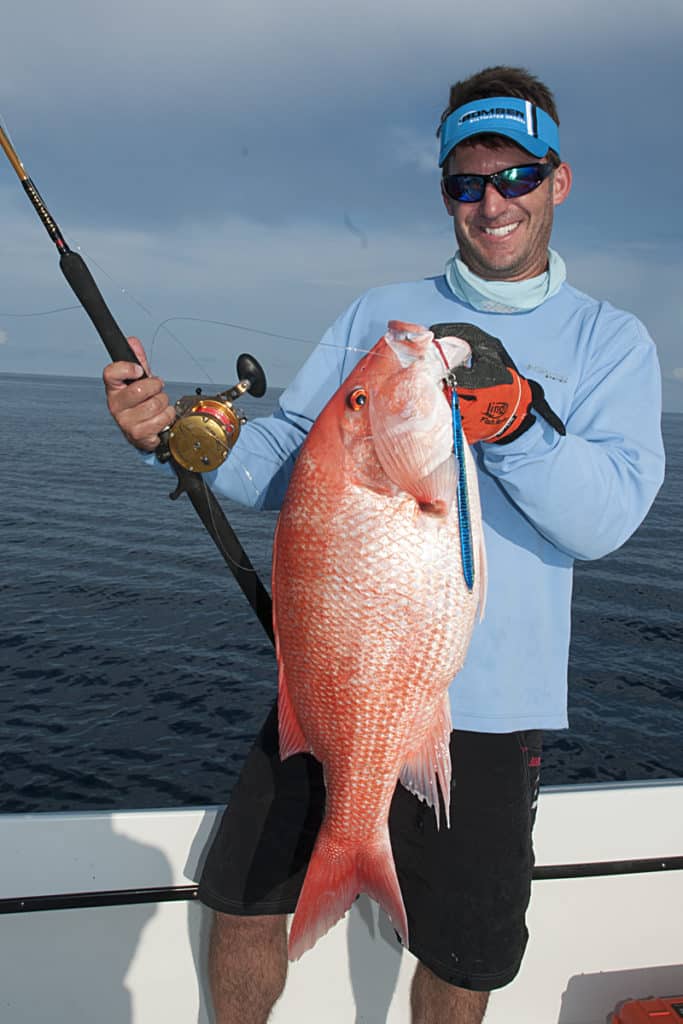
Will you often keep fish?
You don’t really want your catch mingling with your food and drinks in the same cooler, so if you plan to keep fish often, look for a boat with suitable fish boxes to ice down the catch. Look at the dimensions (length, width and depth) of the fish boxes, rather than their overall capacity. A 100-quart fish box sounds large, but it won’t work for you if it’s square and you intend to take home big kingfish, dolphin or wahoo. Make sure the fish boxes are insulated, otherwise the ice won’t last long, and that they drain overboard instead of to the bilge.
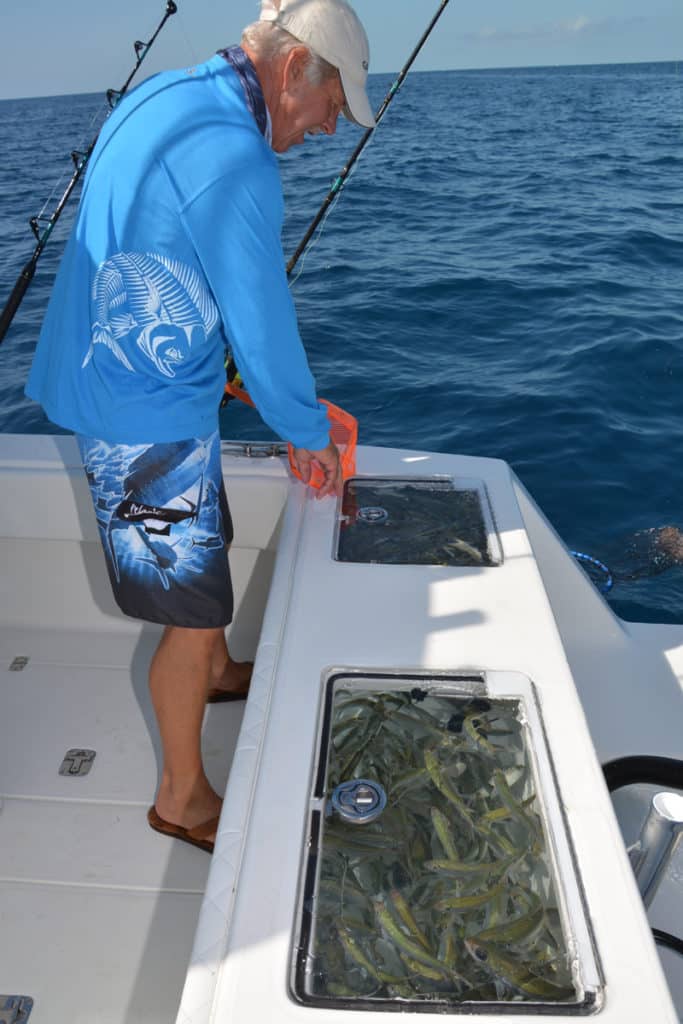
Do you plan to fish live bait?
If live-baiting plays a major role in your fishing, take a close look at livewell systems. Bigger is best, but the shape and location of the well are also important. A round or oval livewell keeps baitfish from bunching up in the corners, which leads to their early demise. A livewell in the rear of the boat — for instance, in the transom — close to where anglers set out lines is more practical than one under the forward seat of the center console. A good aeration system is an absolute must to bring fresh water in from outside the boat. If it adds bubbles, further oxygenating the water it pumps in, even better. If it also recirculates the water already in the livewell, oxygenating it in the process, you’ve got a definite winner.
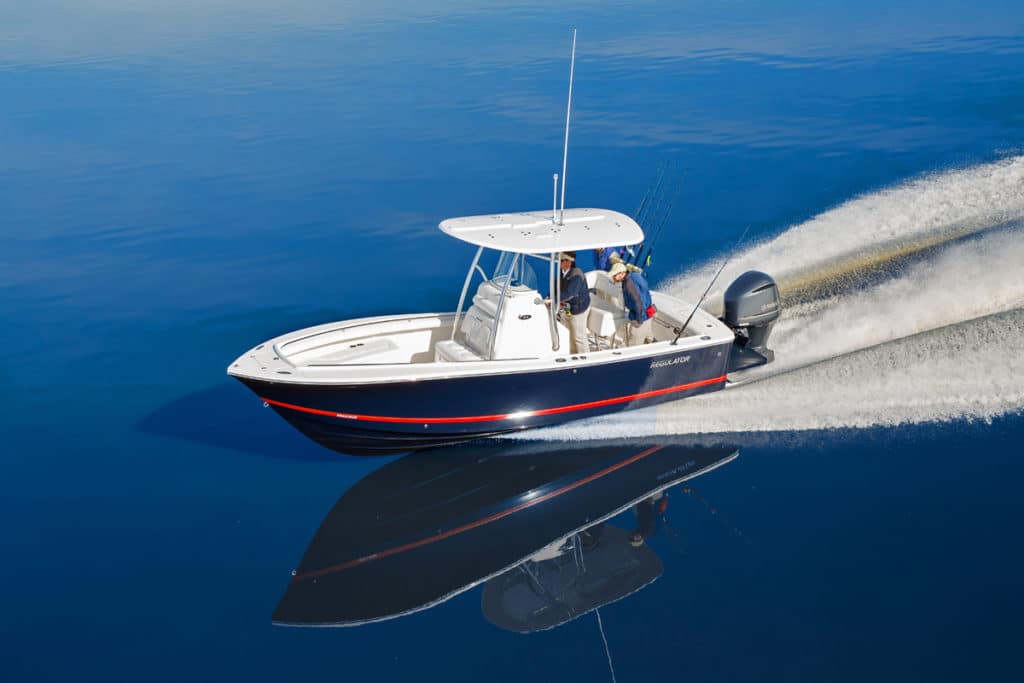
Will you be making long runs?
If you plan to run long distances offshore, say to the northeast canyons, or in places like the Florida Everglades and the Louisiana marshes, look for a boat with extensive range. A boat’s range is not solely derived from its fuel capacity: it also takes the proper power option to produce fuel efficiency. Efficiency usually peaks somewhere around 4,000 rpm, and the motor on an underpowered boat that requires throttling up beyond that range to achieve a respectable cruising speed, severely hinders fuel efficiency. As a rule of thumb, opt for the motor (or motors) that gets you within 20 percent of the boat’s maximum HP rating, and go for the max if you’ll run the boat with a heavy load of passengers and gear.
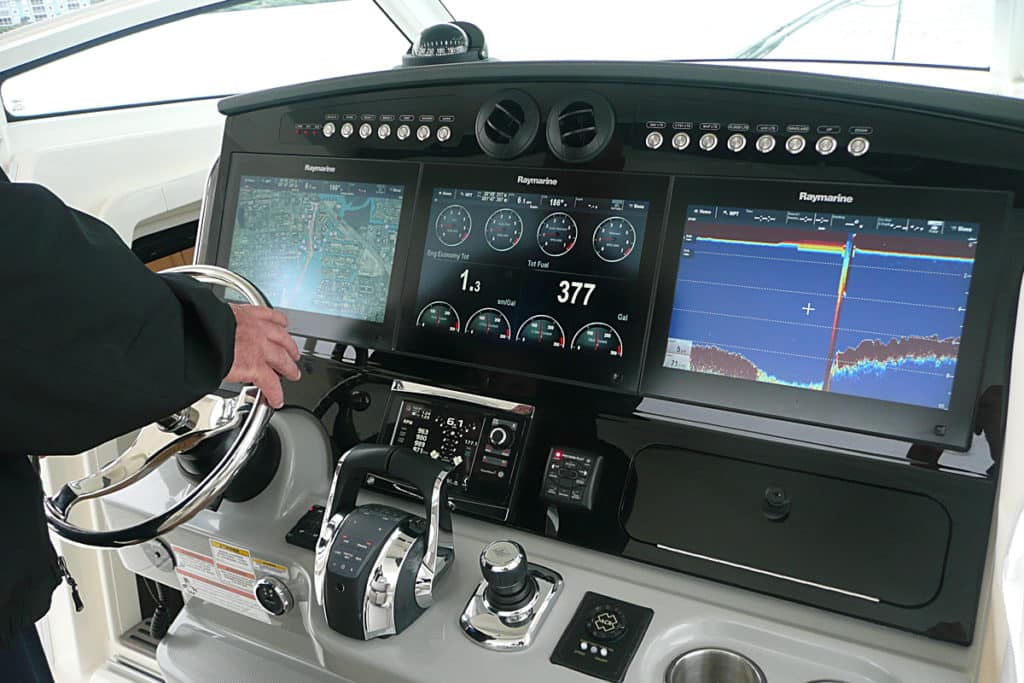
What kind of electronics will you require?
Most anglers get by with a chart plotter (GPS), a fish finder (sonar) and a VHF radio. If you strictly fish shallow flats, a fish finder may not be necessary. On the other hand, if your fishing takes you far from shore, consider radar. Every major marine electronics brand offers multi-purpose units that perform the chart-plotting and fish-finding, sometimes in addition to other functions. Such units come in a range of sizes, so even boats with limited space easily accommodate the essentials. Separate units dedicated to a single function allow easier monitoring, while large multi-function displays permit precise viewing of valuable information that may go unnoticed in smaller screens.
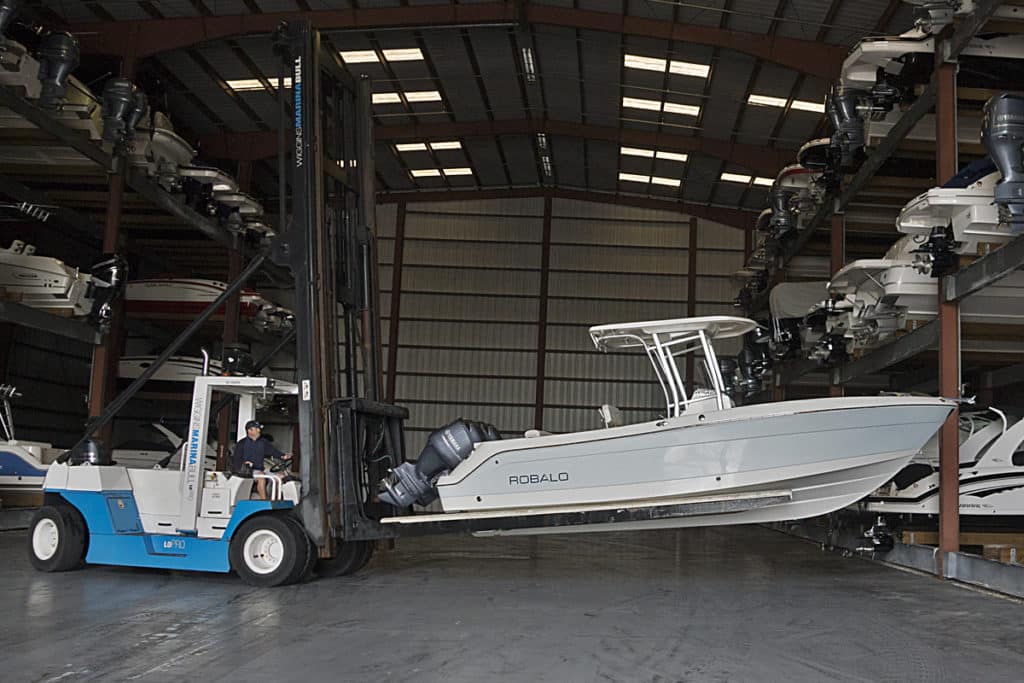
Where will you store the boat?
If you expect to keep the boat at home on a trailer, you better do more than just measure your yard or driveway to confirm you can park it there. City ordinances and homeowner associations sometimes prohibit boats being stored at home, or in plain sight. If you learn ahead of time that keeping the boat at home is not an option, investigate alternatives, and factor the cost into your boat-buying budget.
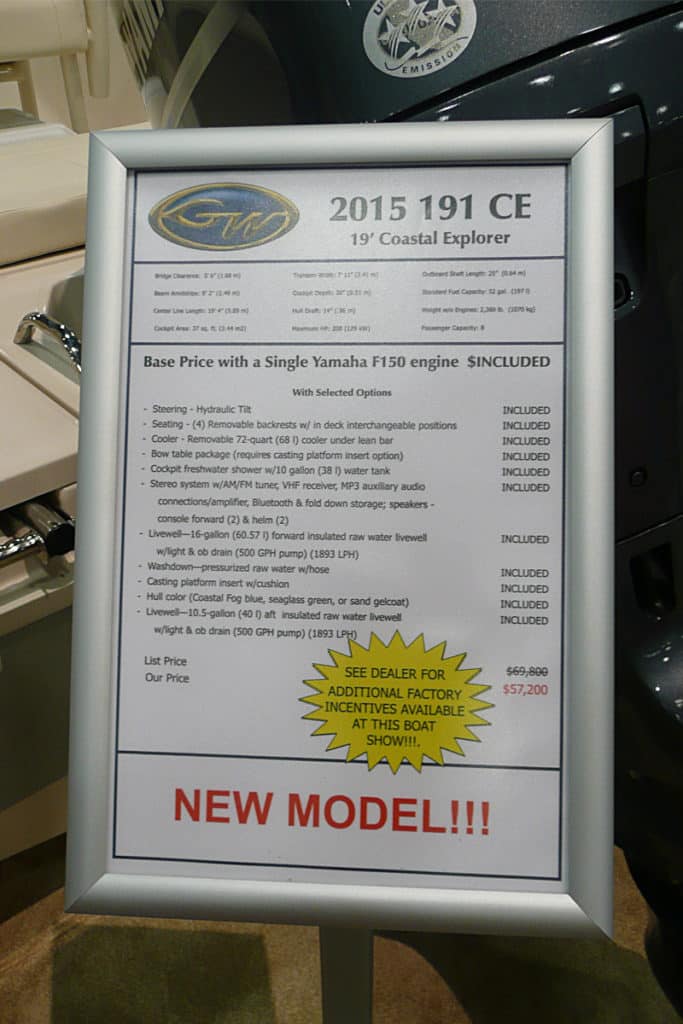
How much can you afford?
If you’ve bought a car, chances are you already know how to set a budget for a major purchase, but keeping a boat entails additional considerations. The cost of fuel, for example, is substantially greater on the water. Marinas often charge $1.50 or more above what you’d pay for a gallon of gas at a filling station. Repairs also are generally more expensive. And by the way, will you need to have a boatlift installed or pay monthly storage at a marina? If you finance the boat, it may be wise to scale down on optional features that can be added later. That way you keep a few bucks in reserve for unexpected boat expenses.
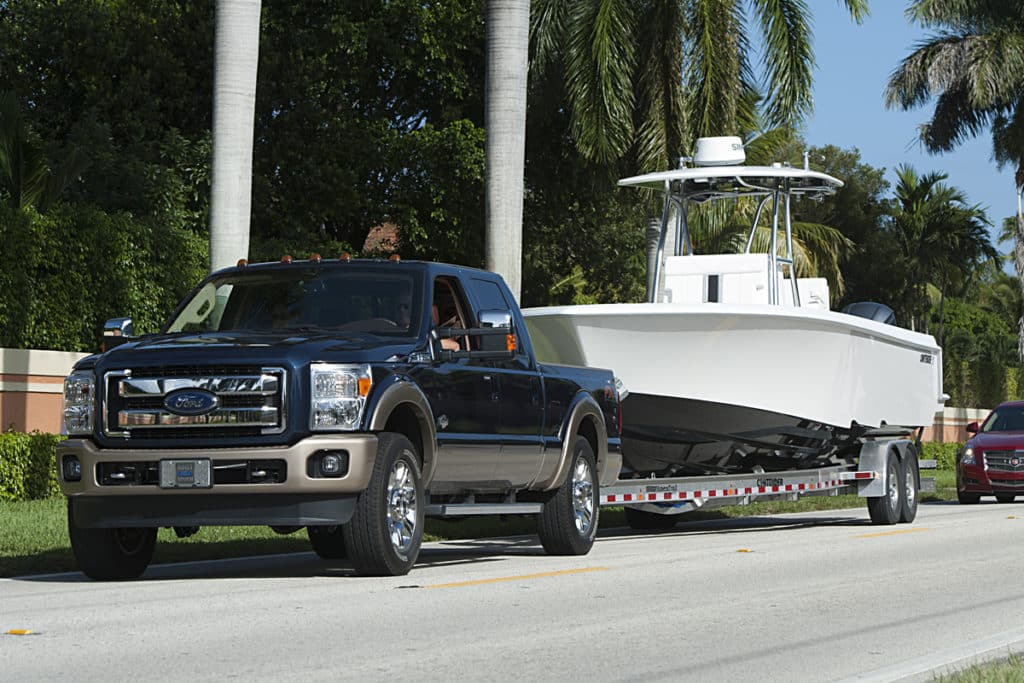
How big a boat can your vehicle tow?
Even if you can afford to buy that gorgeous new 27-footer, you better make sure you have the means to tow it. A midsize truck or SUV with a six-cylinder engine probably won’t handle the load. Are you willing to trade it in for a larger vehicle to trailer the new boat? Before you say yes, do the math again, factoring in higher car and insurance payments in your budget.

